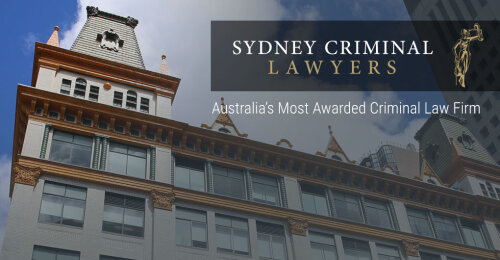Best Restructuring & Insolvency Lawyers in Sydney
Share your needs with us, get contacted by law firms.
Free. Takes 2 min.
List of the best lawyers in Sydney, Australia
About Restructuring & Insolvency Law in Sydney, Australia
Restructuring and insolvency law governs the legal processes that individuals and businesses follow when they cannot meet their financial obligations. In Sydney, as in the rest of Australia, these laws are designed to help businesses in financial distress recover or, if recovery is not possible, to manage an orderly closure. Restructuring focuses on helping companies reorganise their operations, debts, and structures to improve financial health, while insolvency covers situations where debts cannot be paid and may lead to liquidation or bankruptcy. These laws aim to protect creditors, debtors, employees, and the broader economy by providing clear processes for managing financial difficulty.
Why You May Need a Lawyer
Legal advice is crucial when facing restructuring or insolvency issues, as the decisions made can have long-lasting personal and financial consequences. Common situations where a lawyer can assist include:
- Facing cash-flow problems or financial distress in your business
- Understanding directors' duties and potential liabilities
- Responding to a statutory demand or threat of legal action from creditors
- Exploring corporate restructuring or voluntary administration to save your business
- Facing personal bankruptcy or considering alternatives
- Negotiating with creditors or lenders
- Liquidation of a company or unfair preference claims
- Challenging or defending insolvent trading claims
- Managing employee entitlements during insolvency
Having a qualified legal adviser ensures you understand your rights and obligations, minimises personal risk, and helps you make informed choices about the future of your business or personal finances.
Local Laws Overview
Australia’s restructuring and insolvency laws are primarily governed by the Corporations Act 2001 for companies and the Bankruptcy Act 1966 for individuals. In Sydney, these laws are administered through federal courts but local expertise remains essential, as factors such as the jurisdiction of the New South Wales Supreme Court and the presence of local insolvency practitioners can impact proceedings.
Key features include:
- Voluntary Administration: Allows insolvent companies temporary protection from creditors, with an independent administrator proposing a rescue plan.
- Receivership: A secured creditor appoints a receiver to collect and sell company assets to repay debts.
- Liquidation: The company’s assets are sold off to pay creditors, often resulting in the end of the business.
- Safe Harbour: Directors may avoid liability for insolvent trading if they are taking legitimate steps to restructure the company.
- Bankruptcy: When an individual cannot pay debts, a trustee manages their assets to distribute to creditors.
Directors and business owners in Sydney must be aware of strict obligations and timelines involved in these processes. Timely legal advice helps ensure compliance and protects against personal liability.
Frequently Asked Questions
What is the difference between restructuring and insolvency?
Restructuring involves reorganising a company’s affairs, debts, or structure to improve financial stability. Insolvency means a person or business cannot pay its debts when they are due, often triggering legal processes such as bankruptcy or liquidation.
How do I know if my company is insolvent?
Your company may be insolvent if it cannot pay its debts as they fall due. Warning signs include ongoing losses, unpaid taxes, mounting creditor demands, and constant use of overdraft facilities.
What are the consequences of trading while insolvent?
Company directors who allow insolvent trading may be personally liable for company debts. This is a serious breach of the Corporations Act and can lead to civil or criminal penalties.
What options are available to restructure my company’s debts?
Options include voluntary administration, entering into a Deed of Company Arrangement (DOCA), negotiating with creditors, or informal workouts. Legal and accounting advice should be sought before proceeding.
What is voluntary administration?
Voluntary administration is a process where an insolvency practitioner temporarily manages the company’s affairs to assess whether it can continue, be restructured, or should be liquidated. It provides breathing space from creditors.
What happens to employees if a company goes into liquidation?
Employee entitlements, such as unpaid wages, leave, and redundancy, are prioritised but may not always be paid in full if there are insufficient funds. The government’s Fair Entitlements Guarantee scheme may assist eligible employees.
Can I avoid bankruptcy if I am a sole trader in financial difficulty?
Alternatives to bankruptcy include debt agreements, personal insolvency agreements, or negotiating payment plans with creditors. Legal advice is vital to understand all available options.
How does bankruptcy affect my assets?
A bankruptcy trustee can take control of your assets, except for essentials such as some household goods, tools of trade up to a certain value, and a car up to a value limit. Luxury items and property may be sold to pay creditors.
What is the “Safe Harbour” provision for directors?
Safe Harbour protects directors from personal liability for insolvent trading if they are actively developing and implementing a plan for restructuring the company to improve its financial position.
Do I need a lawyer, or can I handle insolvency matters myself?
While some processes can be started without a lawyer, restructuring and insolvency are complex areas. Legal advice ensures your rights and obligations are protected, reduces risk, and helps you navigate negotiations or court processes successfully.
Additional Resources
Several organisations and government bodies provide information, assistance, and support in restructuring and insolvency matters in Sydney:
- Australian Securities and Investments Commission (ASIC): Regulates company law and insolvency for businesses.
- Australian Financial Security Authority (AFSA): Oversees personal insolvency, including bankruptcy and debt agreements.
- Fair Work Ombudsman: Offers information on employee entitlements during insolvency.
- Law Society of New South Wales: Provides resources and referrals for finding qualified restructuring and insolvency lawyers in Sydney.
- Australian Small Business and Family Enterprise Ombudsman: Offers guidance for small business owners facing financial distress.
- Financial Counselling Australia: Provides free and confidential financial counselling.
Next Steps
If you are facing financial difficulties as an individual or business in Sydney, it is important to seek advice early. Here are steps you can take:
- Assess your financial position and identify signs of insolvency or distress
- Gather all relevant financial documents, contracts, and correspondence
- Contact a qualified restructuring and insolvency lawyer in Sydney for an initial consultation
- Discuss your situation honestly and provide full disclosure to your legal adviser
- Explore options such as restructuring, negotiation, voluntary administration, or other formal insolvency processes
- Follow the legal advice given and maintain open communication with stakeholders and creditors
- Access government and community resources for additional support as needed
Taking timely and informed action with the right legal support can help you manage financial risks, protect your interests, and achieve the best possible outcome.
Lawzana helps you find the best lawyers and law firms in Sydney through a curated and pre-screened list of qualified legal professionals. Our platform offers rankings and detailed profiles of attorneys and law firms, allowing you to compare based on practice areas, including Restructuring & Insolvency, experience, and client feedback.
Each profile includes a description of the firm's areas of practice, client reviews, team members and partners, year of establishment, spoken languages, office locations, contact information, social media presence, and any published articles or resources. Most firms on our platform speak English and are experienced in both local and international legal matters.
Get a quote from top-rated law firms in Sydney, Australia — quickly, securely, and without unnecessary hassle.
Disclaimer:
The information provided on this page is for general informational purposes only and does not constitute legal advice. While we strive to ensure the accuracy and relevance of the content, legal information may change over time, and interpretations of the law can vary. You should always consult with a qualified legal professional for advice specific to your situation.
We disclaim all liability for actions taken or not taken based on the content of this page. If you believe any information is incorrect or outdated, please contact us, and we will review and update it where appropriate.
















